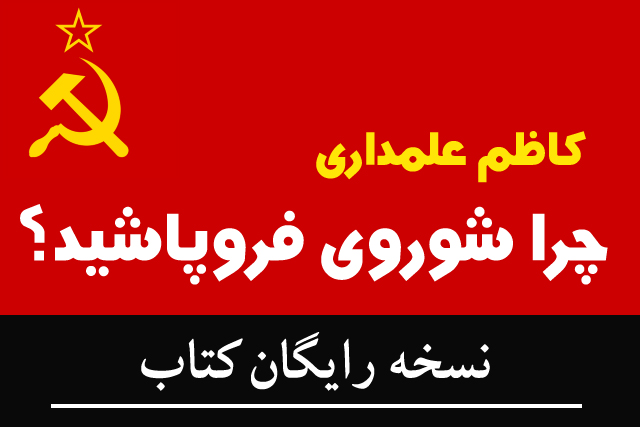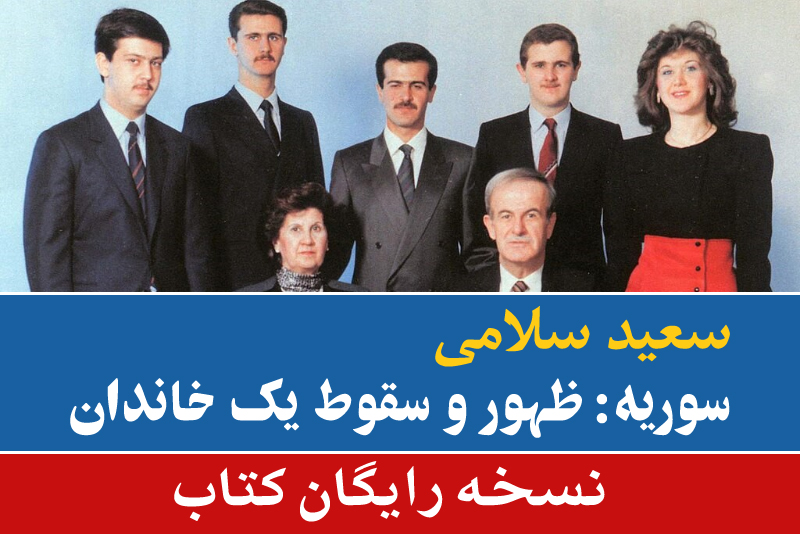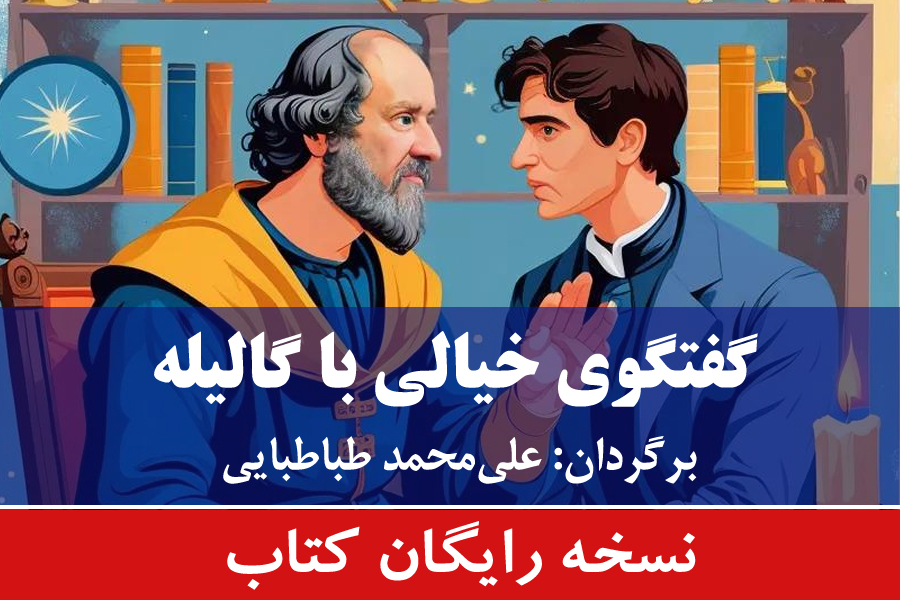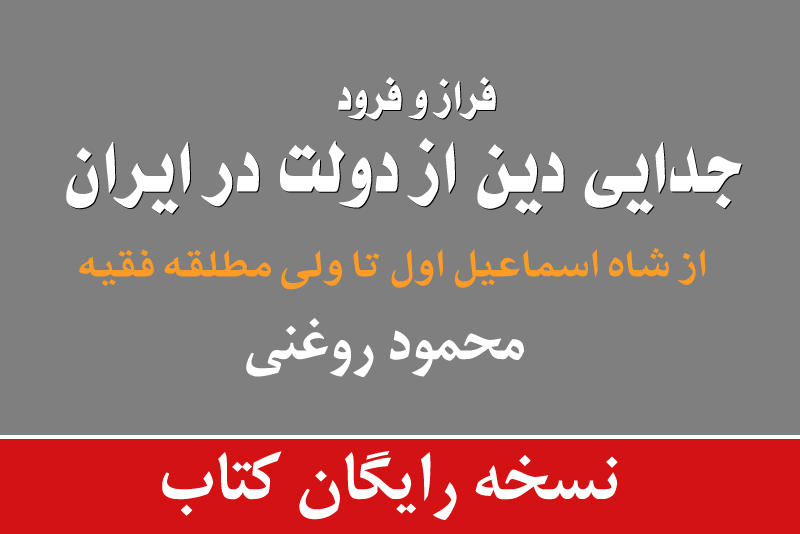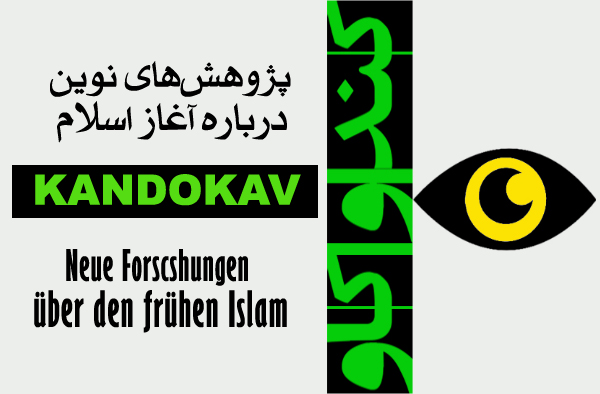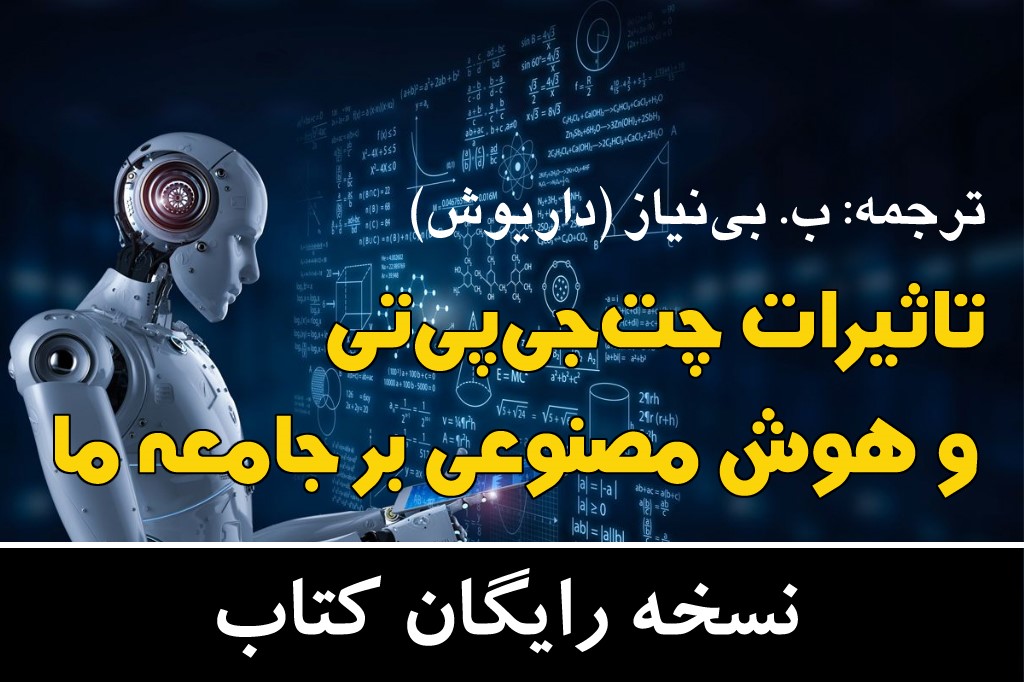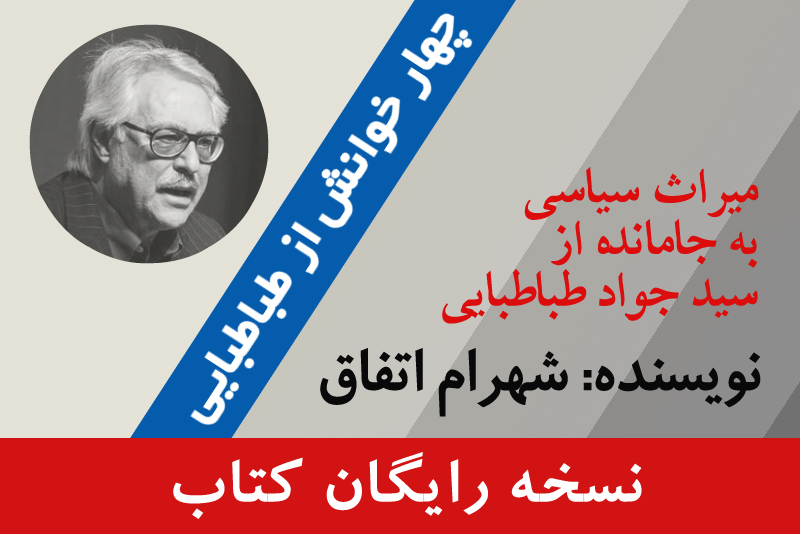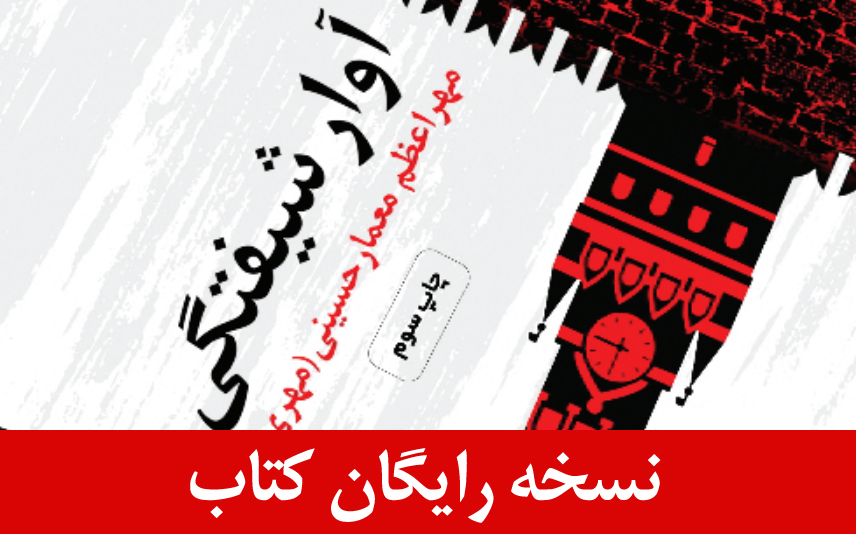| صفحه نخست | خبر و گزارش | سياست | انديشه | فرهنگ و ادبيات | زندگی | محیط زیست | RSS |
iran-emrooz.net | Tue, 20.02.2007, 21:42
نامه گروهی از دانشگاهيان، نويسندگان، و هنرمندان ايرانی درباره كنفرانس انكار هالوكاست در تهران
مدت زمانی است كه تريبونهای مختلفی در ايران درباره انكار نسلكشی يهوديان در طول جنگ جهانی دوم اظهار نظرهايی كردهاند. اوج چنين اظهار نظرهايی برگزاری كنفرانسی بينالمللی تحت عنوان «هالوكاست» در آذر ماه ١٣٨٥ در تهران بود، كه تحت پوشش تبليغاتی وسيعی در داخل و خارج از ايران قرار گرفت. نظر به پیآمدهای اخلاقی و عملی چنين روندی، ما، گروهی از دانشگاهيان، نويسندگان، و هنرمندان ايرانی، لازم میبينيم كه در اينباره موضعگيری كنيم.
١- اكنون، پس از طی چند دهه از جنگ جهانی دوم، به استناد گواهی بازماندگان آن، و تحقيقات جمع پرشماری از مورخان، نفس وقوع نسلكشی يهوديان در طول اين جنگ واقعيتی پذيرفته شده و انكارناپذير است. مورخان، در كنار نسلكشی يهوديان، از كشتار كولیها، اسلاوها، مخالفان بالفعل و بالقوه دولت نازی، معلولان، اسيران جنگی، و حتی سربازان از كار افتاده آلمانی در اواخر جنگ، خبر میدهند. اين جنايتها بهطور وسيع و به شيوههای گوناگون، از جمله تيرباران، گرسنگی دادن و بيگاری كشيدن ممتد در اردو گاههای كار اجباری، و كشتار دستهجمعی در اتاقهای گاز در اردوگاههای مرگ، انجام گرفتهاند. نه تنها مستندات اين وقايع، يعنی آثار مادی، اعترافات جنايتكاران در دادگاه نورنبرگ و دادگاه های ديگر، و گواهی نجات يافتگان از اردوگاهها، غير قابل انكار هستند، بلكه حجم وسيع ادبيات يهودستيزانه و نژادپرستانهای كه از سران نازی بهجا مانده است ريشههای اين جنون غير انسانی را آشكار میكند. سنديت اين وقايع تا كنون از سوی جمع بزرگی از مراجع علمی- دانشگاهی، مسئولان سياسی، و مراجع مذهبی- اخلاقی چون كليسای كاتوليك پذيرفته شده است، و همگی آنها اين جنايتها را بهشدت تقبيح كردهاند. در مقابل، افرادی كمشمار، با تشكيك بر سر تعداد قربانيان اين جنايات، يا چگونگی وقوع آنها، نسلكشی يهوديان در جنگ جهانی دوم را انكار میكنند، يا شأن و اهميت آن را به مثابه يك پديده خاص زير سؤال میبرند. بخش اعظم سخنرانان كنفرانس اخير تهران از اين دست بودند. اين كنفرانس معيارهای شناخته شده برای يك نشست علمی را برآورده نمیكرد: انتخاب شركتكنندگان يك نشست علمی به وسيله متخصصان همان علم (در اين مورد مورخان) صورت میگيرد؛ در يك نشست علمی حداكثر تلاش میشود تا هم مدافعان و هم مخالفان يك نظريه بتوانند حضور داشته باشند تا بحث در بگيرد، زيرا فقط در بحث است كه میتوان به مستدل شدن ادعاها اميد داشت. در كنفرانس تهران، برخلاف همه اينها، صرفاً پارهای ادعاها با هدف تبليغاتی مطرح شدند. علاوه براين، رجوع به اين ادعاها بدون توجه به سابقه و رويكرد بعضاً نژادپرستانه آنها صورت گرفت. مثال بارز اين مورد حضور و سخنرانی شرمآور يكی از رهبران سابق فرقه كوكلاكسكلان آمريكا، كه به سوزاندن آمريكاييان آفريقايیتبار مشهور است، در اين كنفرانس بود.
٢- در تاريخ بشر متاسفانه رخدادهای تاريكی وجود دارد كه از جهت شكستن معيارهای بشری و نقض اصول اوليه اخلاقی با ساير وقايع قابل قياس نيستند. زخمهايی كه چنين رخدادهايی بر چهره بشريت گذشتهاند درمانناپذيرند، و سخن گفتن ناسنجيده درباره آنها در حكم نمك پاشيدن بر اين زخمها و تازه كردن درد آنهاست. بهطور خاص، در مورد جنايتهای رخداده در جنگ جهانی دوم، زخم تازه است چرا كه هنوز قربانيانی از اين جنايتها زندهاند. مثال بارز چنين حساسيتی را میتوان در واكنش مردم و دولتهای كشورهای خاور دور در برابر موضعگيری دولت كنونی ژاپن درباره جايگاه نظاميان ارشد ژاپنی در طول جنگ جهانی دوم ديد. كسانی كه به گفتار انكار نسلكشی يهوديان دامن میزنند، عواطف مردمانی را كه مستقيماً از اين واقعه صدمه ديدهاند ناديده میگيرند؛ مردمانی كه در ميان هموطنان يهودی ما در ايران نيز يافت میشوند.
٣- يكی ديگر از ادعاهای مطرح شده در كنفرانس اخير اين بود كه پذيرش واقعيت تاريخی نسلكشی يهوديان ابزاری برای تاييد سياستهای دولت اسرائيل از بدو تشكيل آن بوده است. در كنفرانس تهران، اين ادعا بهويژه از سوی دستهای از مراجع مذهبی يهودی، كه با اتكا بر تفسير خود از متون دينیشان با موجوديت دولت اسرائيل مخالف هستند، مطرح شد. چنين ادعاهايی اگر مخرب نباشند، سازنده هم نيستند. پيدايش دولت اسرائيل در سرزمينهای فلسطينی تاريخ خود را دارد، و هر نظری كه درباره شكلگيری و تحولات بعدی اين دولت داشته باشيم در مستندات تاريخی مربوط به نسلكشی يهوديان تغييری حاصل نمیشود. اينكه از زمان پيدايش دولت اسرائيل جنايتهای انكارناپذيری عليه فلسطينيان رخ داده است دستاويزی اخلاقی برای انكاركنندگان نسلكشی يهوديان فراهم نمیكند. نه قبول واقعيت نسلكشی يهوديان در جنگ جهانی دوم مستلزم نفی حقوق فلسطينيان است، و نه انكار اين نسلكشی میتواند مقوم دفاع از حقوق تضييع شده فلسطينيان بهوسيله دولت اسرائيل باشد. فلسطينيان نيز، مانند هر ملت ديگری، حق دارند كشوری مستقل و قابل زيستن از آن خود داشته باشند؛ اين حقی است كه تلاش برای اعاده آن ربطی به انكار يا قبول نسلكشی يهوديان ندارد. ادعاهايی از آن دست كه در كنفرانس تهران ابراز شد تنها میتواند بهضرر تلاشهای حقطلبانه فلسطينيان و صلحطلبان ساكن اسرائيل باشد.
٤- در ورای همه تبليغاتی كه در رسانههای ايرانی درباره كنفرانس تهران صورت گرفت، حقيقتی تلخ ناگفته ماند. اين حقيقت كه كوچك شمردن و انكار كشتار و رنج آدميان برای نتيجهگيریهای سياسی - هر چه میخواهند باشند - خواه ناخواه به نوعی سقوط اخلاقی منجر خواهد شد. سقوط اخلاقیای كه داوری درباره زشتی كشتن بیگناهان را موكول به پیآمدهای سياسی اين داوری میكند. سقوط اخلاقیای كه با تشكيك بر سر رقم كشته شدگان، فراموش میكند كه «هر كس بیگناهی را بكشد، مانند اين است كه همه انسانها را كشته است».
ما امضا كنندگان اين نامه، چنان كه در بندهای پيشين هم گفتيم، معتقديم كه برگزاری چنين «كنفرانس»هايی پيش از هر چيز وجهه علمی نظام دانشگاهی ايران را مخدوش میكند. ما برآنيم كه برگزاری چنين كنفرانسهايی نه تنها كمكی به بهبود وضع فلسطينيان نمیكند، بلكه ريختن آب به آسياب جنگافروزان منطقه است. ما برآنيم كه برگزاری كنفرانسی برای انكار هالوكاست در تهران مروج موضعی غير اخلاقی بوده است كه فرهنگ و همزيستی اجتماعی انسانها را بهخطر میاندازد.
An open letter by a group of Iranian academics, writers, and artists regarding the Tehran Conference on Holocaust Denial
Over the past year or so a number of official and unofficial public statements have been made in Iran denying the genocide of Jews during the Second World War. The culmination of this trend was the widely publicized, so called “International Holocaust Conference”, held in Tehran in December 2006. Given the serious moral and practical implications of this trend, we, a group of Iranian academics, intellectuals, writers and artists, find it imperative to take a public stance on this issue.
1- Today, several decades after the end of the Second World War, testimonies of the survivors and researches carried out by numerous historians have unequivocally confirmed the Jewish genocide during the World War. Besides the genocide of the Jewish people, historians have also spoken of the mass murders of the gypsies, the Slav people, potential and actual opponents of the Nazi regime, the disabled, prisoners of war, and even in the closing days of the war, the incapacitated German soldiers. These crimes were committed widely and in various ways, including through firing squads, starvation, long hours of forced labour in concentration camps, and massacres in the gas chambers of extermination camps. The extensive material evidence, the confessions made in the Nuremberg trials and other trials that took place after the war and the testimonies of the survivors establish the veracity of the accounts beyond any doubt. Moreover, the voluminous anti-Semitic and racist literature left from the Nazis shed light on the roots of this inhuman hysteria. The accuracy of the accounts has been acknowledged by many academic, political and religious authorities including the Catholic Church. They have all condemned these crimes. On the other hand, there have always been a few individuals who have denied the genocide of the Jewish people or questioned its significance, through casting doubt on the number of people murdered or the manner in which they were put to death. The majority of the speakers in the recent conference held in Tehran were from amongst those few. This conference did not meet the requirements of an academic forum. The speakers in such a forum should be chosen by specialists of the topic on which they are to speak (in this case, historians). In an academic forum both sides of an argument should be invited in order to engage in a discussion. Only in an open discussion involving all sides of a debate one can hope to see the presentation of substantiated claims. In the absence of such academic standards, in the conference held in Tehran, mere unsubstantiated claims were put forward, mainly for propaganda purposes. Moreover, the proponents of these claims were invited to the conference without paying any attention to their background which in some cases was outright racism. The presence and the appalling speech presented by a former Ku Klux Klan leader, a group infamous for its involvement in hate crimes against the African Americans, was a result of this recklessness.
2- In the history of mankind, there have been dark events that have treaded upon human values and broken basic moral principles in such a way that make them distinct from other comparable events. The scars left behind on the face of humanity by these events are irreversible and talking inconsiderately about them can only be described as rubbing salt into the wound and exacerbating the pain. This is in particular true of the crimes committed during the Second World War, some survivors of which are still among us. The sensitivity of the issue could be seen in the reaction shown by the people and the governments of the Eastern Asian countries against the stance of the current Japanese government in regard to senior military officers of the War. Those who perpetuate the discourse on Holocaust denial ignore the feelings of the people directly affected by this event. These people include, among others, a group of our Jewish fellow citizens in Iran.
3- One of the main claims put forward in this conference was that the Holocaust, as a historical event, has been used as a tool to justify the policies of the state of Israel. This claim was expressed in particular by a group of Jewish religious scholars who according to their reading of the Holy Scriptures opposed the existence of the state of Israel. Such claims are at best unhelpful to the cause of Palestine. The creation of the state of Israel on the lands of Palestine has its own history. No matter what political position we adopt regarding the creation of Israel and its further expansion, the historical evidence for the Holocaust remains intact. The fact that since the inception of the state of Israel many crimes have been committed against the Palestinian population does not provide moral ground for the denial or undermining of the genocide of the Jewish people. Acknowledging the Holocaust does not lead to the disavowal of the rights of the Palestinians, nor does its denial or undermining strengthens the case in their favour. The Palestinians, like all other nations, have a right to enjoy their livelihood in their own independent state. This right has nothing to do with the denial or acknowledgement of the Holocaust. Claims such as those that were uttered in the conference held in Tehran, can only work to the detriment of the rightful cause of the Palestinians and the efforts of the proponents of peace in Israel.
4- Forgotten amongst all the sensationalism in the Iranian media accompanying the conference, was the bitter reality that the undermining or denial of human suffering for the sake of making political points – whatever they might be – will inevitably lead to moral degeneration: a moral degeneration that makes any judgment on the wrongfulness of the murder of the innocent dependent upon its political reverberations; a moral degeneration where by questioning the number of the victims, it fails to realize that “whoever kills an innocent, it is as if he has killed all mankind”.
We, the signatories of this letter, are of the opinion that such “conferences”, more than anything, harm the academic image of the Iranian universities. We believe that conferences like this do not help the cause of the Palestinian people and only provide pretexts for the warmongers in the region. We are of the opinion that holding a conference in Tehran in support of the denial of the Holocaust has perpetuated an immoral stance that seriously endangers the culture of peace and the peaceful cohabitation of human beings.
01. Babak Ahmadi, Writer (Iran)
02. Houshiar Ansarifar, Translator (Iran)
03. Emad Baghi, Writer (Iran)
04. Kaveh Bayat, Historian (Iran)
05. Maziar Behrooz, San Francisco State University (USA)
06. Mehrzad Boroujerdi, Syracuse University (USA)
07. Mansour Bonakdarian, University of Toronto at Mississauga (Canada)
08. Rama Cont, Columbia University (USA)
09. Khashayar Dayhimy, Translator (Iran)
10. Kaveh Ehsani, University of Illinois at Chicago (USA)
11. Farideh Farhi, University of Hawaii at Manoa (USA)
12. Laleh Ghadakpour, Iranian Institute of Philosophy (Iran)
13. Nader Hashemi, Northwestern University (USA)
14. Arsalan Kahnemuyipour, Syracuse University (USA)
15. Ramin Karimian, Translator (Iran)
16. Arang Keshavarzian, Connecticut College (USA)
17. Azadeh Kian, University of Paris 8 (France)
18. Morteza Mardiha, Writer (Iran)
19. Ali Moazzami, Writer (Iran)
20. Mohammad R. Moeini, University of Massachusetts Amherst (USA)
21. Mehran Mohajer, Photographer (Iran)
22. Hassan Mortazavi, Translator (Iran)
23. Mohammad Rezai-Rad, Playwrights (Iran)
24. Farzaneh Taheri, Translator (Iran)
25. Kian Tajbakhsh, Sociologist (Iran)
26. Mehran Tamaddon, Documentary Filmmaker (Iran)
27. Farzin Vahdat, Vassar College (USA)
An open letter by a group of Iranian academics, writers, and artists regarding the Tehran Conference on Holocaust Denial
Over the past year or so a number of official and unofficial public statements have been made in Iran denying the genocide of Jews during the Second World War. The culmination of this trend was the widely publicized, so called “International Holocaust Conference”, held in Tehran in December 2006. Given the serious moral and practical implications of this trend, we, a group of Iranian academics, intellectuals, writers and artists, find it imperative to take a public stance on this issue.
1- Today, several decades after the end of the Second World War, testimonies of the survivors and researches carried out by numerous historians have unequivocally confirmed the Jewish genocide during the World War. Besides the genocide of the Jewish people, historians have also spoken of the mass murders of the gypsies, the Slav people, potential and actual opponents of the Nazi regime, the disabled, prisoners of war, and even in the closing days of the war, the incapacitated German soldiers. These crimes were committed widely and in various ways, including through firing squads, starvation, long hours of forced labour in concentration camps, and massacres in the gas chambers of extermination camps. The extensive material evidence, the confessions made in the Nuremberg trials and other trials that took place after the war and the testimonies of the survivors establish the veracity of the accounts beyond any doubt. Moreover, the voluminous anti-Semitic and racist literature left from the Nazis shed light on the roots of this inhuman hysteria. The accuracy of the accounts has been acknowledged by many academic, political and religious authorities including the Catholic Church. They have all condemned these crimes. On the other hand, there have always been a few individuals who have denied the genocide of the Jewish people or questioned its significance, through casting doubt on the number of people murdered or the manner in which they were put to death. The majority of the speakers in the recent conference held in Tehran were from amongst those few. This conference did not meet the requirements of an academic forum. The speakers in such a forum should be chosen by specialists of the topic on which they are to speak (in this case, historians). In an academic forum both sides of an argument should be invited in order to engage in a discussion. Only in an open discussion involving all sides of a debate one can hope to see the presentation of substantiated claims. In the absence of such academic standards, in the conference held in Tehran, mere unsubstantiated claims were put forward, mainly for propaganda purposes. Moreover, the proponents of these claims were invited to the conference without paying any attention to their background which in some cases was outright racism. The presence and the appalling speech presented by a former Ku Klux Klan leader, a group infamous for its involvement in hate crimes against the African Americans, was a result of this recklessness.
2- In the history of mankind, there have been dark events that have treaded upon human values and broken basic moral principles in such a way that make them distinct from other comparable events. The scars left behind on the face of humanity by these events are irreversible and talking inconsiderately about them can only be described as rubbing salt into the wound and exacerbating the pain. This is in particular true of the crimes committed during the Second World War, some survivors of which are still among us. The sensitivity of the issue could be seen in the reaction shown by the people and the governments of the Eastern Asian countries against the stance of the current Japanese government in regard to senior military officers of the War. Those who perpetuate the discourse on Holocaust denial ignore the feelings of the people directly affected by this event. These people include, among others, a group of our Jewish fellow citizens in Iran.
3- One of the main claims put forward in this conference was that the Holocaust, as a historical event, has been used as a tool to justify the policies of the state of Israel. This claim was expressed in particular by a group of Jewish religious scholars who according to their reading of the Holy Scriptures opposed the existence of the state of Israel. Such claims are at best unhelpful to the cause of Palestine. The creation of the state of Israel on the lands of Palestine has its own history. No matter what political position we adopt regarding the creation of Israel and its further expansion, the historical evidence for the Holocaust remains intact. The fact that since the inception of the state of Israel many crimes have been committed against the Palestinian population does not provide moral ground for the denial or undermining of the genocide of the Jewish people. Acknowledging the Holocaust does not lead to the disavowal of the rights of the Palestinians, nor does its denial or undermining strengthens the case in their favour. The Palestinians, like all other nations, have a right to enjoy their livelihood in their own independent state. This right has nothing to do with the denial or acknowledgement of the Holocaust. Claims such as those that were uttered in the conference held in Tehran, can only work to the detriment of the rightful cause of the Palestinians and the efforts of the proponents of peace in Israel.
4- Forgotten amongst all the sensationalism in the Iranian media accompanying the conference, was the bitter reality that the undermining or denial of human suffering for the sake of making political points – whatever they might be – will inevitably lead to moral degeneration: a moral degeneration that makes any judgment on the wrongfulness of the murder of the innocent dependent upon its political reverberations; a moral degeneration where by questioning the number of the victims, it fails to realize that “whoever kills an innocent, it is as if he has killed all mankind”.
We, the signatories of this letter, are of the opinion that such “conferences”, more than anything, harm the academic image of the Iranian universities. We believe that conferences like this do not help the cause of the Palestinian people and only provide pretexts for the warmongers in the region. We are of the opinion that holding a conference in Tehran in support of the denial of the Holocaust has perpetuated an immoral stance that seriously endangers the culture of peace and the peaceful cohabitation of human beings.
01. Babak Ahmadi, Writer (Iran)
02. Houshiar Ansarifar, Translator (Iran)
03. Emad Baghi, Writer (Iran)
04. Kaveh Bayat, Historian (Iran)
05. Maziar Behrooz, San Francisco State University (USA)
06. Mehrzad Boroujerdi, Syracuse University (USA)
07. Mansour Bonakdarian, University of Toronto at Mississauga (Canada)
08. Rama Cont, Columbia University (USA)
09. Khashayar Dayhimy, Translator (Iran)
10. Kaveh Ehsani, University of Illinois at Chicago (USA)
11. Farideh Farhi, University of Hawaii at Manoa (USA)
12. Laleh Ghadakpour, Iranian Institute of Philosophy (Iran)
13. Nader Hashemi, Northwestern University (USA)
14. Arsalan Kahnemuyipour, Syracuse University (USA)
15. Ramin Karimian, Translator (Iran)
16. Arang Keshavarzian, Connecticut College (USA)
17. Azadeh Kian, University of Paris 8 (France)
18. Morteza Mardiha, Writer (Iran)
19. Ali Moazzami, Writer (Iran)
20. Mohammad R. Moeini, University of Massachusetts Amherst (USA)
21. Mehran Mohajer, Photographer (Iran)
22. Hassan Mortazavi, Translator (Iran)
23. Mohammad Rezai-Rad, Playwrights (Iran)
24. Farzaneh Taheri, Translator (Iran)
25. Kian Tajbakhsh, Sociologist (Iran)
26. Mehran Tamaddon, Documentary Filmmaker (Iran)
27. Farzin Vahdat, Vassar College (USA)
|
| |||||||||||||
|
ايران امروز
(نشريه خبری سياسی الکترونیک)
«ايران امروز» از انتشار مقالاتی كه به ديگر سايتها و نشريات نيز ارسال میشوند معذور است. استفاده از مطالب «ايران امروز» تنها با ذكر منبع و نام نويسنده يا مترجم مجاز است.
Iran Emrooz©1998-2025 | editor@iran-emrooz.net
|
